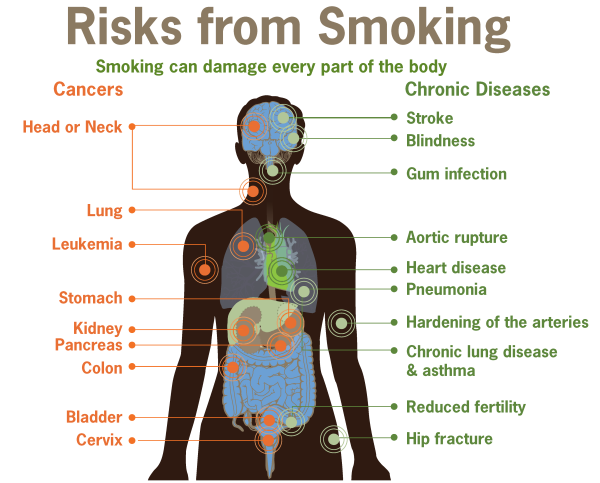Secondhand smoke, often referred to as environmental tobacco smoke, is comprised of the mixture of smoke exhaled by smokers and smoke directly from burning tobacco products. It’s a pervasive and insidious pollutant, infiltrating spaces both public and private, and wreaking havoc on the health of those exposed.

The Detrimental Effects of Secondhand Smoke on Humans
Secondhand smoke isn’t just a nuisance; it’s a serious health risk. The Australian Government’s Department of Health notes that it contains more than 7000 chemicals, many of which are toxic and can cause cancer. It’s particularly harmful to children and adults with pre-existing health conditions, leading to respiratory issues, heart disease, and even sudden infant death syndrome (SIDS).

In the following sections, we’ll explore how this dangerous smoke affects our pets, often considered part of our families, yet frequently overlooked when discussing the risks of secondhand smoke.
The Growing Concern of Secondhand Smoke and Pets
With the global smoking population on the rise, one overlooked victim is our household pets. Studies show that domestic animals are at risk from secondhand smoke, just as humans are. This increased exposure to tobacco products has led to a surge in respiratory and cardiac issues among pets, an issue that necessitates urgent attention.
The Need for Awareness
The health of our pets is a significant concern, and the detrimental effects of secondhand smoke on them are often underestimated. It’s essential to raise awareness about this issue. Various campaigns like the RSPCA’s ‘Quit for your pet’ initiative highlight the dangers of smoking around pets and encourage smokers to quit for their pet’s sake. This initiative, along with others, aims to educate the public about the dangers of secondhand smoke to pets, thereby promoting healthier environments for these beloved family members.
The Physiology of Pets and Smoke Inhalation
When pets inhale smoke, the particles pass through their nostrils, down their windpipe and into the lung’s alveoli. Here, the smoke displaces oxygen, leading to hypoxia, a condition characterised by a deficiency in oxygen reaching tissues. Studies have shown that prolonged exposure can lead to chronic obstructive pulmonary disease.
Differences Between Human and Pet Respiratory Systems
Though similar, there are critical differences between human and pet respiratory systems. Pets, particularly dogs and cats, have smaller and more compact respiratory systems. This makes them more susceptible to smoke inhalation as there is less surface area for oxygen absorption. Additionally, pets tend to breathe at a faster rate than humans, which means they inhale more smoke particles per minute, further increasing their risk.
Detailed Risks for Dogs from Secondhand Smoke
Exposure to secondhand smoke can pose significant health risks to your dogs.
Specific Diseases and Conditions in Dogs from Secondhand Smoke
- Respiratory Problems: Dogs exposed to secondhand smoke are more likely to suffer from respiratory problems like bronchitis and asthma.
- Lung Cancer: Dogs with a long nasal passage (like collies) are at a higher risk of developing nasal cancer from inhaling secondhand smoke.
- Allergies: Dogs can develop allergies from the residues of tobacco smoke on their fur and in their environment.
- Eye and Skin Disorders: The harmful chemicals in tobacco smoke can cause various eye and skin diseases in dogs.
As responsible pet owners, it’s important to understand the dangers of secondhand smoke to our pets and take necessary precautions to protect them.
Detailed Risks for Cats Due to Secondhand Smoke
Secondhand smoke poses severe health threats to our beloved feline friends. A cat living in a smoke-filled environment is exposed to harmful toxins, which can lead to various diseases.
There is a significant correlation between secondhand smoke and feline lymphoma, a type of cancer that accounts for nearly 33% of all reported feline cancers.
Specific Diseases and Conditions in Cats
Besides lymphoma, cats are at risk of developing several other conditions due to secondhand smoke. For instance, they can suffer from respiratory problems like asthma and bronchitis.
The RSPCA also indicates a link between secondhand smoke and oral cancer in cats. The carcinogens in tobacco smoke can settle on their fur, which they ingest during grooming, increasing their risk of oral malignancies.
As responsible pet owners, it’s critical to understand these risks and make informed decisions about smoking habits to protect our pets’ health.
Detailed Risks for Birds and Other Small Pets Exposed to Secondhand Smoke
Secondhand smoke poses significant health risks to birds and other small pets. These animals have sensitive respiratory systems, making them more vulnerable to harmful substances found in smoke. Research has established a link between exposure to secondhand smoke and various diseases in these pets.
Specific Diseases and Conditions Related to Secondhand Smoke
Conditions such as pneumonia, lung cancer, and eye problems can all develop in birds and small pets from secondhand smoke exposure. Studies have shown an increased risk of malignant lymphoma in cats living in a smoking environment. Furthermore, guinea pigs and rabbits can develop heart disease and bronchitis, respectively. It’s pivotal that pet owners understand these risks to protect their beloved companions from such harmful conditions.
Studies and Research on Secondhand Smoke and Pets
Significant research has been conducted into the effects of secondhand smoke on pets. A landmark study by the American Journal of Epidemiology implicated secondhand smoke in a higher risk of certain cancers in dogs and cats. Another pivotal study by Tufts University found an increased incidence of oral cancer in cats exposed to secondhand smoke.
Analyzing the Severity of the Issue
The findings from these studies underscore a dire need for pet owners to reconsider their smoking habits. The RSPCA warns that pets are twice as likely to develop cancer if their owners smoke, highlighting the severity of this issue. In addition, pets are more vulnerable as they spend more time at home, increasing their exposure to harmful toxins.
Preventing Harm: Protecting Your Pets from Smoke Exposure
It’s crucial to understand that your habits, including smoking, can significantly affect your pet’s health. Smoking around pets can lead to various health problems, including respiratory issues and even cancer. The American Veterinary Medical Association warns that pets can ingest tobacco smoke particles by licking their fur, which is harmful.
Suggestions for Smokers to Safeguard Their Pets
- Designate specific smoking areas away from your pets.
- Ensure adequate ventilation to prevent smoke from lingering.
- Keep all tobacco products out of pets’ reach.
Creating a Smoke-free Environment for Your Pets
Creating a smoke-free environment is imperative for your pets’ wellbeing. This reduces their exposure to harmful smoke particles, providing them with a safer, healthier environment.
Quit Smoking for Your Pets’ Health
For the ultimate protection, consider quitting smoking. Not only will this benefit your health, but it’ll also significantly reduce your pets’ exposure to harmful secondhand smoke.
Conclusion
Our pets are part of our family, and it’s our responsibility to ensure their wellbeing. By creating a smoke-free environment and considering smoking cessation, we can protect our furry friends from the dangers of secondhand smoke.






